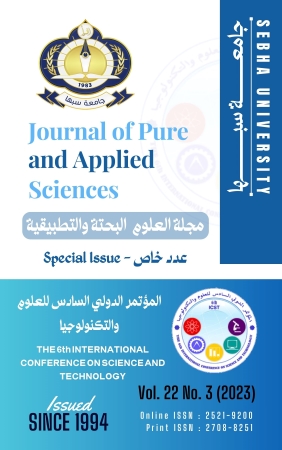The Therapeutic Potential Of Date Palm Pollen For Testicular Disorders Induced By Diabetes In Male Diabetic Rats
Abstract
Diabetes mellitus (DM) is the main cause of large-scale morbidity and mortality. This syndrome has adverse effects on all physiological systems, including the male reproductive system. It affects a large number of men of reproductive age and causes serious reproductive disorders. This study was aimed to examine the protective effect of date palm pollen (DPP) on diabetes-induced testicular disorders in male rats. Rats were divided into 4 groups. The first group represents the negative control, while the second group is the positive control. In contrast, the following two groups represent the treated groups of DPP suspension with a concentration of 130 mg/kg and 160 mg/kg for 4 weeks. At the end of the experiment, the rats were anesthetized, the epididymis and testis were extracted. The positive control group significantly decreased body weight, sex hormones, and sperm count. However, a significant increase in fasting glucose and the number of abnormal sperm. The histological results confirmed tubular degeneration, Leydig cell atrophy, and tubular dilation. Decrease the basement membrane, the semenforuos epithelium, and tubular diameter, while the diameter of the lumen increased. Treatment with DPP suspension showed a significant decrease in the level of fasting glucose and the number of abnormal sperm. While the number of sperm increased significantly. The results of the histological study confirmed that the Seminiferous Tubules treated with DPP were intact, the germinal epithelium dense, seminiferous tubules did not expand. We concluded that the DPP has an influence on protecting testis from diabetes complication.
Full text article
Authors
Copyright (c) 2023 Journal of Pure & Applied Sciences

This work is licensed under a Creative Commons Attribution 4.0 International License.
In a brief statement, the rights relate to the publication and distribution of research published in the journal of the University of Sebha where authors who have published their articles in the journal of the university of Sebha should how they can use or distribute their articles. They reserve all their rights to the published works, such as (but not limited to) the following rights:
- Copyright and other property rights related to the article, such as patent rights.
- Research published in the journal of the University of Sebha and used in its future works, including lectures and books, the right to reproduce articles for their own purposes, and the right to self-archive their articles.
- The right to enter a separate article, or for a non-exclusive distribution of their article with an acknowledgment of its initial publication in the journal of Sebha University.
Privacy Statement The names and e-mail addresses entered on the Sabha University Journal site will be used for the aforementioned purposes only and for which they were used.

